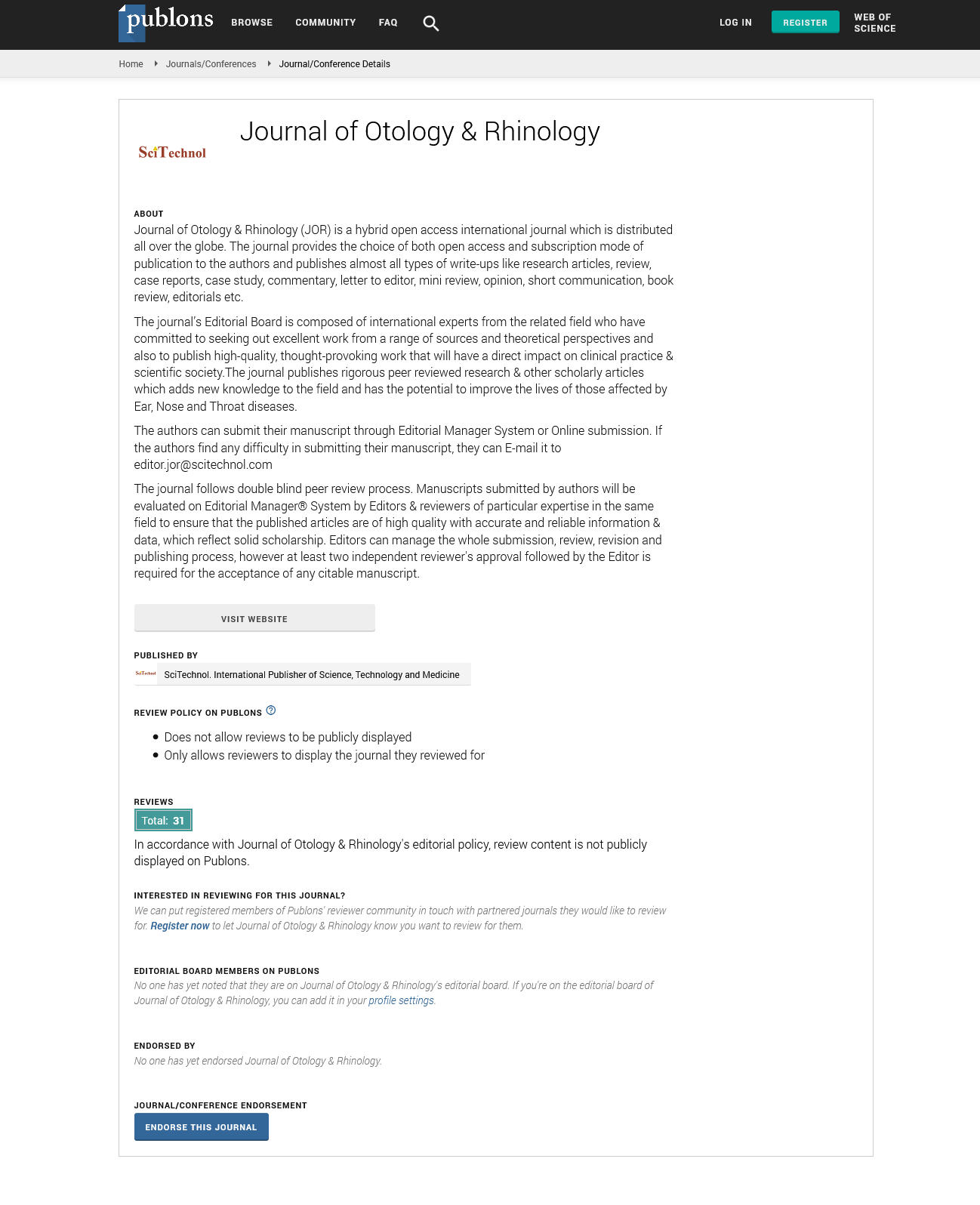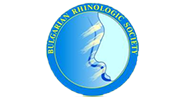Opinion Article, J Otol Rhinol Vol: 12 Issue: 5
Acknowledging Barotrauma's Impact on the Body and Prevention
Tomoo Inoue*
1Department of Surgery, Nagasaki University, Nagasaki, Japan
*Corresponding Author: Tomoo Inoue,
Department of Surgery, Nagasaki
University, Nagasaki, Japan
E-mail: inouetomoo@gmail.com
Received date: 18 August, 2023, Manuscript No. JOR-23-118315;
Editor assigned date: 21 August, 2023, PreQC No. JOR-23-118315 (PQ);
Reviewed date: 04 September, 2023, QC No. JOR-23-118315;
Revised date: 11 September, 2023, Manuscript No. JOR-23-118315 (R);
Published date: 18 September, 2023, DOI: 10.4172/2324-8785.100070
Citation: Inoue T (2023) Acknowledging Barotrauma's Impact on the Body and Prevention. J Otol Rhinol 12:4.
Description
Barotrauma is a condition that results from changes in pressure, typically experienced during activities like scuba diving, flying, or traveling to high altitudes. It occurs when there is a rapid difference in pressure between the inside and outside of the body, leading to discomfort or injury.
Barotrauma occurs when there is an imbalance in pressure between the internal spaces of the body, such as the ears, sinuses, or lungs, and the surrounding environment. Ear Barotrauma is one of the most common forms of barotrauma, usually experienced during changes in altitude, such as when flying in an airplane or diving underwater. Ear barotrauma can affect the middle ear, causing symptoms like ear pain, pressure, and hearing
Causes of barotrauma
Barotrauma is primarily caused by a change in pressure between the inside of the body and the external environment. The most common situations that can lead to barotrauma include:
• As a person descends underwater, the water pressure increases. The pressure on the eardrums, sinuses, and lungs increases as well. Failure to equalize these pressures by adjusting air pressure within the body can lead to barotrauma.
• Airplane cabin pressure is lower at high altitudes, and changes in altitude can affect the pressure inside the ears and sinuses. Failure to equalize the pressure during takeoff and landing can result in ear or sinus barotrauma.
• Workers in hyperbaric chambers, used for medical treatments or underwater construction, are also at risk of barotrauma if the pressure is not properly managed.
• Activities like mountain climbing, driving through mountains, or taking high-speed elevators can subject the body to rapid pressure changes.
Syptoms of Barotrauma
The symptoms of barotrauma can vary depending on the affected area of the body and the severity of the pressure change. Common symptoms include:
• Ear pain or discomfort
• Feeling of fullness or pressure in the ear
• Temporary hearing loss
• Tinnitus (ringing in the ears)
Treatment of barotrauma
The treatment of barotrauma depends on the type and severity of the condition. In many cases, mild barotrauma can resolve on its own as the body adjusts to the pressure change. However, if symptoms persist or worsen, medical intervention may be necessary. Treatment options include:
• The Valsalva maneuver, a technique used to equalize ear pressure, may be recommended.
• Decongestant nasal sprays can help relieve congestion in the Eustachian tubes.
• In severe cases, a doctor may need to insert a small tube in the ear to equalize pressure.
Prevention of barotrauma
Preventing barotrauma is essential, especially in situations where rapid pressure changes are common. Some preventive measures include:
• When diving, flying, or engaging in activities involving pressure changes, make sure to equalize the pressure in the ears and sinuses. This can be done through techniques like swallowing, yawning, or the Valsalva maneuver.
• For individuals prone to sinus barotrauma, using decongestant nasal sprays before flying or diving can help keep the sinuses clear.
• If possible, try to acclimatize to pressure changes gradually, particularly in high-altitude environments.
• Scuba divers should receive proper training and follow safety guidelines to avoid rapid ascents and descents.
• If you have a history of barotrauma or concerns about your ability to equalize pressure, consult a healthcare provider before engaging in activities involving pressure changes.
Barotrauma is a condition that can be uncomfortable and, in severe cases, potentially dangerous. Understanding its causes, symptoms, treatment options, and preventive measures is crucial for those who engage in activities where rapid pressure changes are common. By taking appropriate precautions and seeking medical advice when necessary, individuals can reduce the risk of barotrauma and ensure a safer and more comfortable experience during activities like diving, flying, and altitude changes.
 Spanish
Spanish  Chinese
Chinese  Russian
Russian  German
German  French
French  Japanese
Japanese  Portuguese
Portuguese  Hindi
Hindi 


